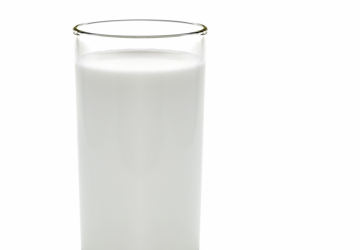A study released last week provides America’s obesity police with new ammunition by concluding that raising the price of pizza and soda—through taxes, say—would reduce how much of them we consume (and thus our total caloric intake). Co-authored by the notoriously overzealous University of North Carolina professor Barry Popkin, the paper is generating lots of media buzz at a time when many states are considering soft drink taxes. But are Popkin's conclusions sound? Not exactly.
The study calculates that a 10 percent hike in the price of soda could result in a decrease in soft drink consumption. But here’s the interesting part: A rise in the price of soda decreased consumption by 7 percent but saw an increase in energy coming from pizza of 10 percent. The opposite was also true: An increase in the price of pizza decreased pizza consumption but increased the calories coming from soda. (See Table 3.) And oddly enough, an increase in the price of a burger resulted in an increase in calories coming from burgers.
This analysis seems simply to show that foods are easily interchangeable. If the cost of one desirable food or drink is is artificially increased through taxation, consumers will simply turn to another food choice that they like. An increase in the price of soft drinks, for instance, spurred an increase in the consumption of whole milk—a beverage with more calories per ounce than soda. How’s that for fighting obesity?
Los Angeles Times writer Karen Kaplan also notes her own concerns about how realistic the study’s conclusions are:
But keep in mind – this is only a model, and models don’t necessarily reflect the real world. For instance, it is often said that 3,500 calories equals one pound of fat. But endocrinologists and other scientists understand that if you permanently reduce your daily caloric intake, you won’t keep losing weight – your body will simply adjust to its new energy level. This is why it can be so difficult for dieters to keep pounds off. It’s also a good reason to question the conclusion that an 18% soda tax would make the average American 5 pounds lighter…
The continuing debate on the merits of soda food taxes will have to proceed without hard scientific evidence.
Of course, those mythical five pounds could be shed by different means. Losing five pounds is the equivalent of zeroing out 48 calories a day over the course of a year. For an average-sized man, that could be done simply by walking for 8 minutes, according to one calorie counter. That’s certainly a more attractive proposal to us than making people pay more for the lunch they enjoy.
On one level, there’s nothing new here. A 2007 USDA report determined that “research shows that simply manipulating food prices is not likely to induce significant improvements in American consumers’ diets.” In a 2004 article, USDA researchers determined that a small tax on snack foods is “unlikely to have much influence on consumer diet quality or health.” A second piece by the same researchers in the Review of Agricultural Economics (in 2005) found that “a small tax on salty snacks would have very small dietary impacts. Even a larger tax would not appreciably affect overall dietary quality of the average consumer.”
There’s plenty more research that reaches similar conclusions. And as experience shows, politicians can’t even get “junk food taxes” right when they try.




